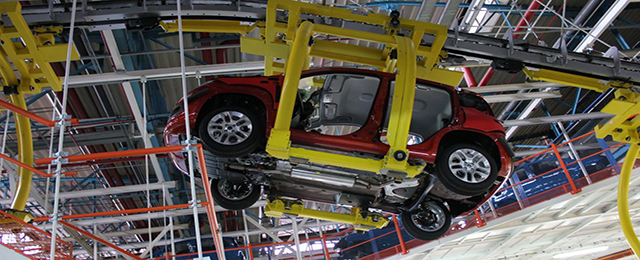Alexandre Mato (Brussels) | Protectionism and government interference has buried the corporate operation of the year. Fiat Chrysler withdrew its 33 billion euro offer to merge with Renault Nissan, based on a car which had barely begun its race to third position in the car making world.
“It is clear that currently the political conditions in France to allow the combined company to be successful do not exist” FCA, the parent company of the Italian US carmaker commented, in a clear reproach to the behaviour of the French government.
The French state controls 15% of Renault, a fact which is now undoubtedly regretted in Rome and Turin, Fiat headquarters. Following the French tradition of interfering in the business operations of its Crown Jewels, or in sectors considered strategic, the French Finance Minister, Bruno Le Maire, had already warned that his government wanted a say in the corporate operation to ensure concessions on jobs or the future headquarters of the group.
And so it has been, to the point of shattering the efforts of the two management teams to merge. CONSEJEROS was able to confirm that neither Renault nor Fiat Chrysler had officially notified the Competition Department of the European Commission of their corporate intentions. Sources recognised that “they are not obliged to do so until the moment in which they want to proceed with their merger”.
Brussels’ competition rules are clear. Only “mergers with an EU dimension” are examined, either because the companies have combined income of 5 billion euros or because their billing reaches 2.5 billion euros and they meet other requirements like the presence in at least three member states. The Fiat-Renault operation met these and they were awaiting the notification in Brussels.
It has not happened because of French government interference and, as clarified by sources, that the Commission was going to br “neutral as to whether the company was private or public” when analysing the merger. Where they were not neutral was in the Elysee.
The Italian government has been less relevant. Matteo Salvini, Italian Interior Minister, leader of the Liga and the real head of the Italian government, had said “ If Italy is required to have an institutional presence ( on the FCA board), this would be absolutely appropriate”, at the same time calling the open negotiations between Renault and Fiat “a brilliant operation”.
Italy and its sustainability
To have a holding in the conglomerate FCA similar to what the French government has in Renault, the Italian government would have to invest around 3 billion euros, according to the share value on the Milan stock market, difficult given its delicate financial situation.
Italy is the second country in the Eurozone in terms of public debt over GDP. It closed 2018 at 132.2%, according to Eurostar, exceeded only by Greece, and, in fact, the multi year stabilisation programme which Rome sent to Brussels a few months ago contemplated privatisations of 18 billion euros as a measure to reduce this debt, exactly the opposite of what Salvini was proposing for Italy.





